Definition
Pleurisy, also called pleuritis, inflammation of the pleura, the membranes that line the thoracic cavity and fold in to cover the lungs. Pleurisy may be characterized as dry or wet. In dry pleurisy, little or no abnormal fluid accumulates in the pleural cavity, and the inflamed surfaces of the pleura produce an abnormal sound called a pleural friction rub when they rub against one another during respiration. This rubbing may be felt by the affected person or heard through a stethoscope applied to the surface of the chest.
In wet pleurisy, fluids produced by the inflamed tissues accumulate within the pleural cavity, sometimes in quantities sufficient to compress the underlying lung and cause shortness of breath. Because the pleura is well supplied with nerves, pleurisy can be very painful. Pleurisy is commonly caused by an infection in the underlying lung and, rarely, by diffuse inflammatory conditions such as lupus erythematosus. Treatment of pleurisy includes pain relief, fluid evacuation, and treatment of the underlying disease.
Types of Pleurisy
There are two types of pleurisy: dry and wet pleurisy
- In dry pleurisy, the more common condition, the inflamed pleurae rub directly against each other.
- In wet pleurisy, fluid oozes from the inflamed tissue into the space between the lungs and the chest wall. This fluid may compress the lungs, making breathing difficult.
Both types of pleurisy often occur as complications of respiratory tract infections, such as pneumonia, viral infections, and tuberculosis, and are more likely to develop in persons who are highly susceptible to such infections. They also can be caused by a tumor or an injury.
Some cases are due to certain gastrointestinal tract diseases, particularly of the liver and pancreas, which can inflame the diaphragm (the large muscle separating the chest and abdominal cavities) and the portions of the pleurae that cover the diaphragm.
Pleurisy Risk factors
Things that raise your risk are:
- Having a lung disorder
- The systemic lupus erythematosus (SLE)
- Being around asbestos
- A chest injury
- Heart failure
- Inflammatory bowel disease
- Inflammation of the pancreas
- Arthritis
- Cancer
- Chronic liver and kidney problems
- Sickle cell disease
- Drug reaction
Pleurisy causes
Pleurisy is often caused by an infection. The infection could be viral (flu). It could be bacterial (pneumonia or tuberculosis). Other causes include:
- Asbestos-related disease (from home or work exposure)
- Certain cancers (lung, lymphoma, and mesothelioma)
- Chest trauma
- A blood clot that travels to the lung
- Rheumatoid arthritis
- Lupus (an autoimmune disorder)
Symptoms
People with pleurisy may experience:
- Pain: sharp stabbing pain in the chest, the chest pain may get worse when you breathe in deeply, cough or sneeze
- Shallow and difficult breathing
- Dry coughing
- Weakness
- Headache
- Loss of appetite
- Chills
- Fever
- Rapid heartbeat
These symptoms could be caused by pleurisy, or they could be caused by another disease; only a doctor can tell. If you have these symptoms, or if you think you have pleurisy, see your doctor right away.
Symptoms of pleurisy
Complications of pleurisy
Health problems that may develop from pleurisy include:
- Breathing difficulty
- Fluid buildup between chest wall and lung
- Complications from the original illness
Diagnosis and test
Your doctor will ask about your symptoms and perform a physical examination.
As part of the physical examination, your doctor will use a stethoscope to listen to your chest. Your doctor may hear what is known as a pleural rub a squeaky rubbing sound in the chest. This is a classic sign of pleurisy.
Tests
The following tests may be used to help diagnose the cause of pleurisy.
- Chest X-rays can’t show pleurisy, but they can show fluid collecting between the pleural layers. It can also sometimes identify the cause of pleurisies, such as lung disease, a tumor, or rib fracture.
- Chest CT scan gives more detailed images and can help in the diagnosis of conditions such as blood clots in the lungs.
- Thoracocentesis: If there is a fluid build-up in the pleural space (pleural effusion), your doctor may drain the fluid and send it to be tested to help determine the cause of pleurisy.
- Other tests to help diagnose infectious causes (viruses or bacteria) include testing on sputum samples or throat swabs and blood tests.
Treatment and medications
Non-steroidal anti-inflammatory drugs
- The chest pain that is associated with pleurisy can be treated using the type of painkillers that are known as non-steroidal anti-inflammatory drugs(NSAIDs). Ibuprofen is often used to treat pleurisy. It is available over the counter from pharmacies.
- If NSAIDs are not effective at treating your chest pain, or you are unable to take them because of a pre-existing health condition, such as liver disease, your GP may prescribe a short course of steroid tablets (oral corticosteroids) to reduce inflammation and relieve pain.
- It may seem strange, but lying down on the side of your chest that hurts may help to reduce the pain.
Treating the underlying cause
It may also be necessary to treat the underlying cause of your pleurisy. If it is caused by a viral infection, further treatment may not be required because the infection will usually resolve on its own after a few days.
You will need a course of antibiotics if you have pleurisy that is caused by a bacterial infection. Depending on the severity of your symptoms, this may be either in the form of tablets or injections. Combinations of different antibiotics are usually used. If your symptoms are particularly severe or you are already in poor health, you may need to be admitted to the hospital so that your body’s functions can be supported until your condition stabilises.
Antibiotics
Antibiotics are medicines used to treat infections caused by micro-organisms, usually bacteria or fungi. Examples of antibiotics include amoxicillin, streptomycin, and erythromycin.
Immune system
This is the body’s defense system which helps protect it from disease, bacteria, and viruses.
Inflammation
Inflammation is the body’s response to infection, irritation or injury. It causes redness, swelling, pain and sometimes a feeling of heat in the affected area.
Pain
Pain is an unpleasant physical or emotional feeling and your body’s way of warning you that it has been damaged.
Prevention
- Bacterial pleurisy is often caused by pneumonia which is an infection of the lungs. The infection of the airways and lungs can then spread to include the pleura.
- There is a vaccine against one of the most common organisms that causes pneumonia. It is recommended that people who are at risk of pneumonia be immunised, including young children, older people over the age of 65, people with chronic medical conditions (such as diabetes) and people with reduced immunity.
- Apart from vaccination, treating any infection of the respiratory tract promptly can also reduce the risk of developing pleurisy.
 Diseases Treatments Dictionary This is complete solution to read all diseases treatments Which covers Prevention, Causes, Symptoms, Medical Terms, Drugs, Prescription, Natural Remedies with cures and Treatments. Most of the common diseases were listed in names, split with categories.
Diseases Treatments Dictionary This is complete solution to read all diseases treatments Which covers Prevention, Causes, Symptoms, Medical Terms, Drugs, Prescription, Natural Remedies with cures and Treatments. Most of the common diseases were listed in names, split with categories.
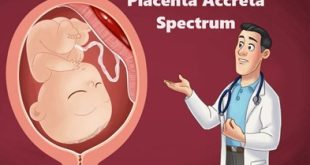

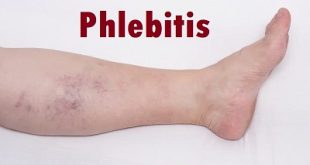
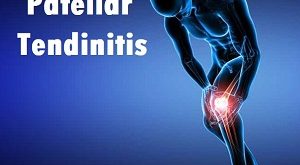

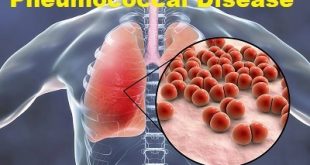
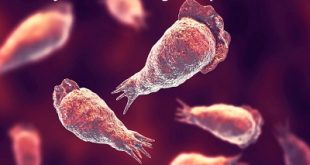

is tuberculosis medicine a anti steroid inflammatory
Tuberculosis medicines are Non-steroidal anti-inflammatory drugs
what is strioid and non strioid
Steroids are chemicals, often hormones, that your body makes naturally. They help your organs, tissues, and cells do their jobs. You need a healthy balance of them to grow and even to make babies. “Steroids” can also refer to man-made medicines. The two main types are corticosteroids and anabolic-androgenic steroids (or anabolics for short).
A nonsteroidal compound is a drug that is not a steroid nor a steroid derivative. Nonsteroidal anti-inflammatory drugs (NSAIDs) are distinguished from corticosteroids as a class of anti-inflammatory agents.
what specific antibiotics can be used to treat the condition
Antibiotics will be prescribed if the inflammation is a result of a bacterial infection. the most used antibiotic is doxycycline.